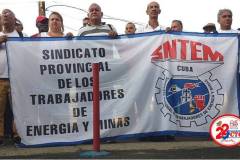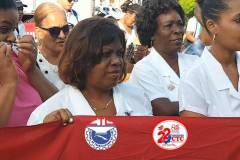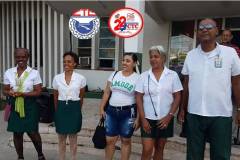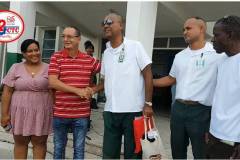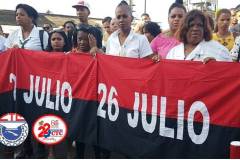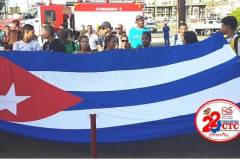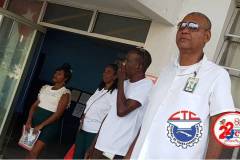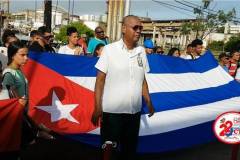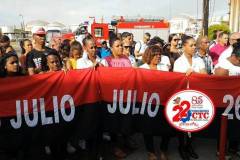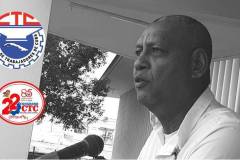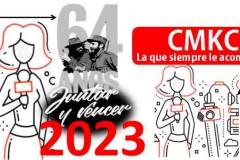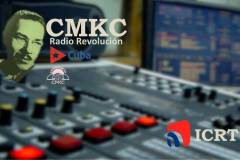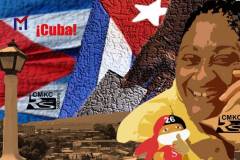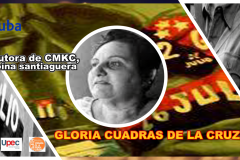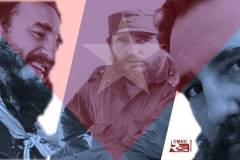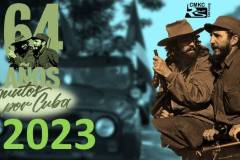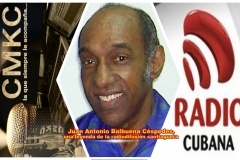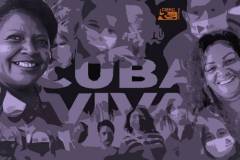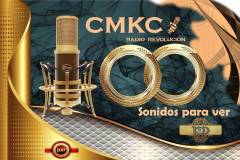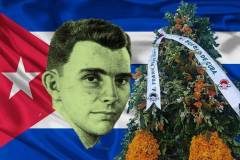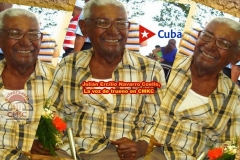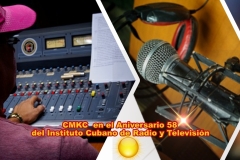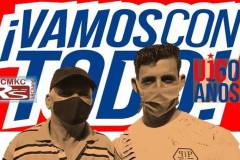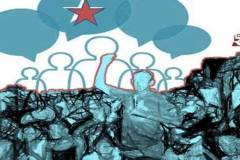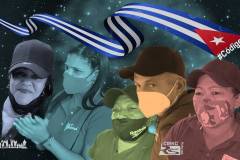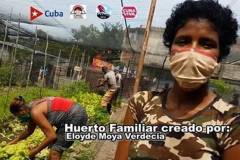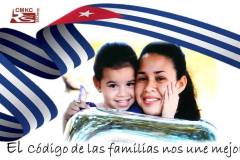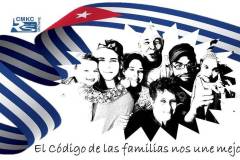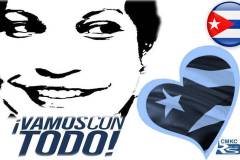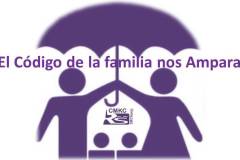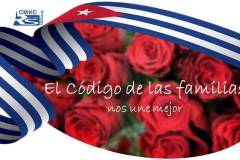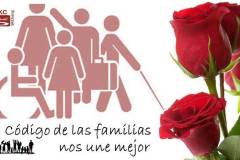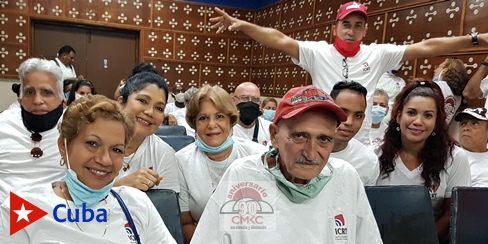
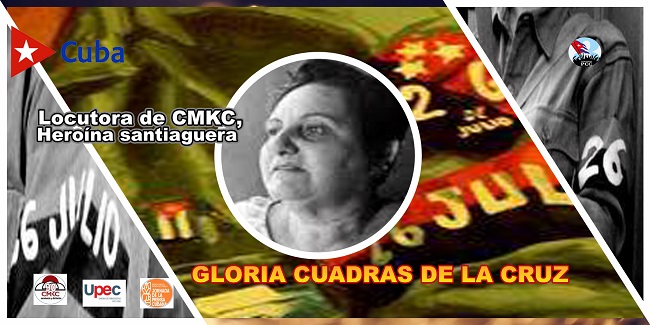
Gloria Cuadras de la Cruz, locutora de CMKC, Heroína santiaguera.Imagen: Santiago Romero Chang
Text and photo: Santiago Romero Chang
Radio- On March 13, 1968, on the occasion of a rally to commemorate the anniversary of the attack on the presidential palace and the takeover of Radio Reloj, our Commander in Chief announced what would be called the revolutionary offensive, through which private properties were passed on to the people.
CMKC, the consecrated radio in Revolution
Radio- In line with these measures, almost all the radio stations in the country adopted a new line of work that included changing the names they had had up to that moment.

Aniversario 98 de la Radio Cubana y los 90 de la CMKC.
Texto y foto: Santiago Romero Chang
At the suggestion of the outstanding director Rolando González, and based on the tradition of the revolutionary struggles of the CMKC, it took the name of Radio Revolucion, at a time when the workers were in the heat of the activities in support of agricultural work, mainly the sugar harvest. With this name it was definitively recognized in the Cuban radio broadcasting system.
La emisora #CMKC hoy de cumple, 91 años de excelencia y distinción #SantiagodeCuba pic.twitter.com/bOrRAFHTnG
— oshun1958 (@oshun1958) March 23, 2021
An original form of communication among human beings emerged when, at the beginning of the 20th century, the first transmission by Hertzian waves was made: Radio. In Cuba it began in Havana in August 1922, by the Mambi lieutenant Luis Casas Romero.
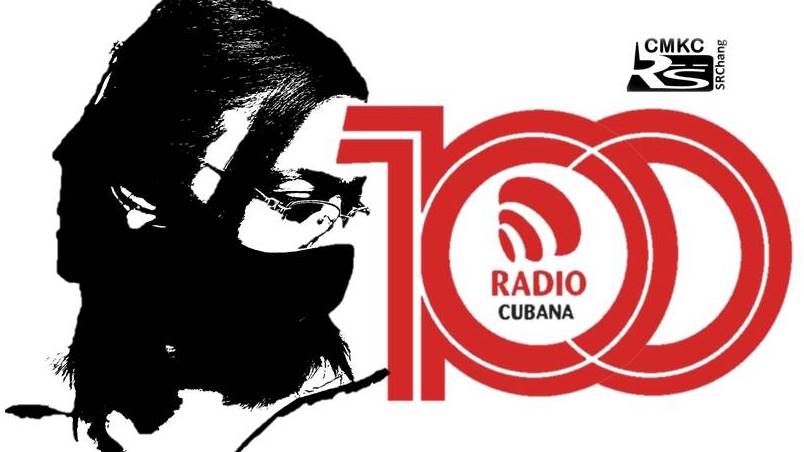
Cumple RadioCuba 25 años
In that same decade, the people of Santiago were able to know about the existence of the 8AX radio station, a pioneer in the eastern territory in radio and initiator of a history full of relevant moments.
It was a period of experimentation thanks to the efforts of radio amateurs, who aired two or three hours of information and music from different places in the city of Santiago de Cuba, without having the legal frame to regulate radio broadcast activity.
In 1923, the first licenses were granted to systematically operate 6 radio plants in the eastern part of the country, through the services of radio amateurs, since then and during the ’30s, the advertising mechanisms that supported the radio activity were consolidated.
These times facilitated the entry of numerous artists, writers and musicians who enriched the content of new radio broadcasts, among which CMKC, Radio Oriente, stood out.
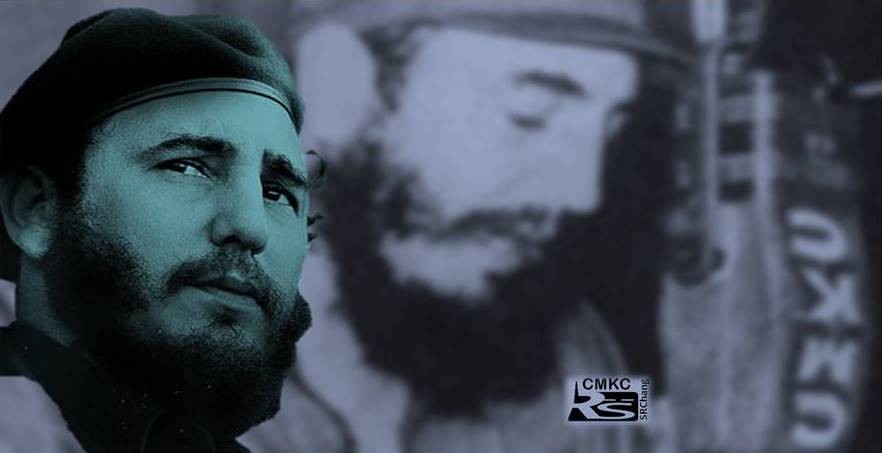
CMKC began its experimental transmissions in 1930, but was not officially recognized until March 23, 1931. Then, subject to commercial transactions and change of owners, the station was consolidated in a definite direction of work in the mid ’40s.
Cumple hoy #CMKC 91 años, Excelencia y Distinción https://t.co/TLZEalLEeL
— Amigos de la Cmkc (@LaCmkc) March 23, 2021
During those years, Radio Oriente developed a mainly commercial and informative programming, assisted by a valuable group of correspondents from the entire former Oriente province. From that time until the present, the station was located in several places of the city, until 1961 when it was definitely moved to 554 Aguilera Street.
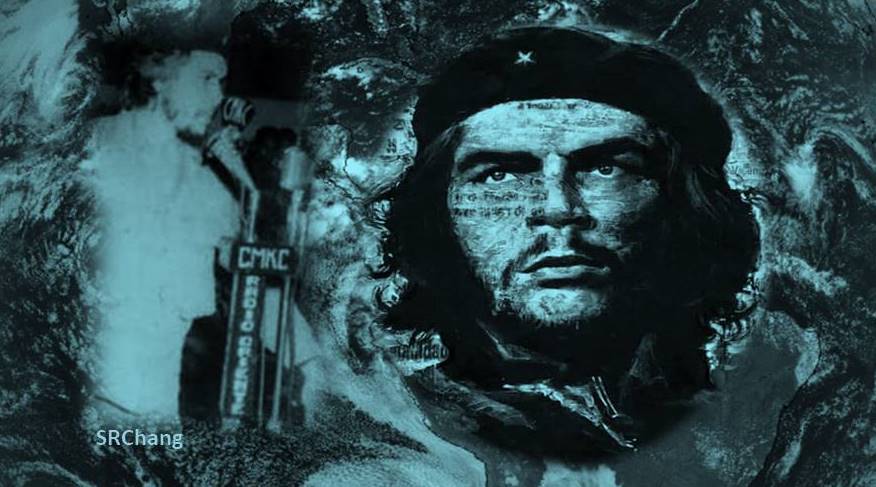
On April 3, 1933, La Voz del Cauto went on the air in Palma Soriano, which went through names such as: Radio Valpin, Radio Palma and, finally, during the revolutionary period, Radio Baragua, its current name. Two years later, on July 5, 1935, the signals of CMKW- Circuito Oriental de Radio, today Radio Mambí, a radio station in the municipality of Santiago de Cuba, began to broadcast.
Feliz Día del Oyente y de la Familia Radialista #CubaViva #RadioCubana pic.twitter.com/Ce2sqjmthe
— CMKC Concierto Informativo (@CmkcConcierto) March 19, 2021
The radio phenomenon also developed in other municipalities of the province such as San Luis and La Maya during the ’40s and ’50s, always with short duration transmissions. In 1952 the first dramatic group of the Eastern Radio was completed in CMKC, with the participation of noted artists such as Jose Antonio Rodriguez, Enrique Almirante and Magali Alou.
It is precisely through CMKC that the father of the radio soap opera, Félix Benjamín Caignet Salomón, from San Luis, initiated the narration of children’s stories through the program «Buenas Tardes Muchachitos» (Good Afternoon, Children), which gave children’s radio comedy continuity and introduced the episodic genre of which «Chelín y Bebita» is an example.
Important moments marked the history of CMKC in the popular struggle against the governments in power. The station’s News developed a systematic style of critical commentary against neocolonial politicking, even when the owners of the plant maintained an iron press censorship in favor of the rulers.
Several of the workers of the radio station were part of the of July 26th Movement and supported the efforts of the Rebel Army in the underground and in the mountains of the Sierra Maestra, either with messages and revolutionary orientations to the people of heroic Santiago, or in the November 30, 1956 Armed.
Some of those comrades suffered in their own flesh the consequences of the Machete Plan, the personal threats and the sadly famous «Palmacristi[1]«: legendary radio operator Vistel Powell, a humble person, very devoted and courageous until his last days of life, or unforgettable Gloria Cuadra, journalist and announcer, coordinator of the July 26th Movement in CMKC, and Noel Pérez, announcer.
Near the revolutionary triumph, CMKC joined the Cadena de la Libertad, (Liberty Chain) headed by Radio Rebelde and broadcast the call for the general strike on January 1, 1959, as it had previously done on April 9, 1958.

Gloria Cuadras de la Cruz, locutora de CMKC,
Heroína santiaguera.Imagen: Santiago Romero Chang
From the premises of our radio station, Commander in Chief Fidel Castro kept abreast of the development of the invasion from east to west. Thus, there remained the memories of the first speech in Revolution, here in the central Cespedes Park, plus the pronouncements to the whole country with the call: «No coup d’état! Because it would only prolong the war!”
_______________________
1 Concoction prepared with castor oil that the police forced it down the throat of detained revolutionaries during Batista’s tyranny.

